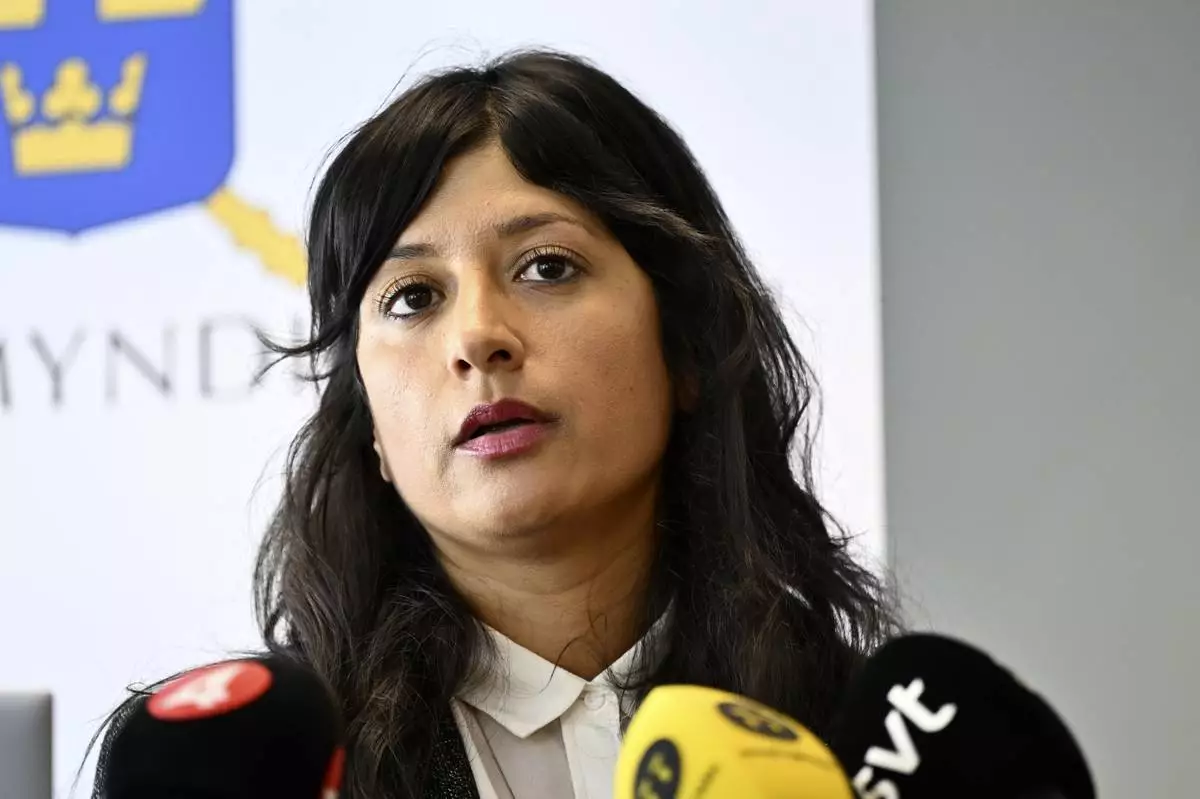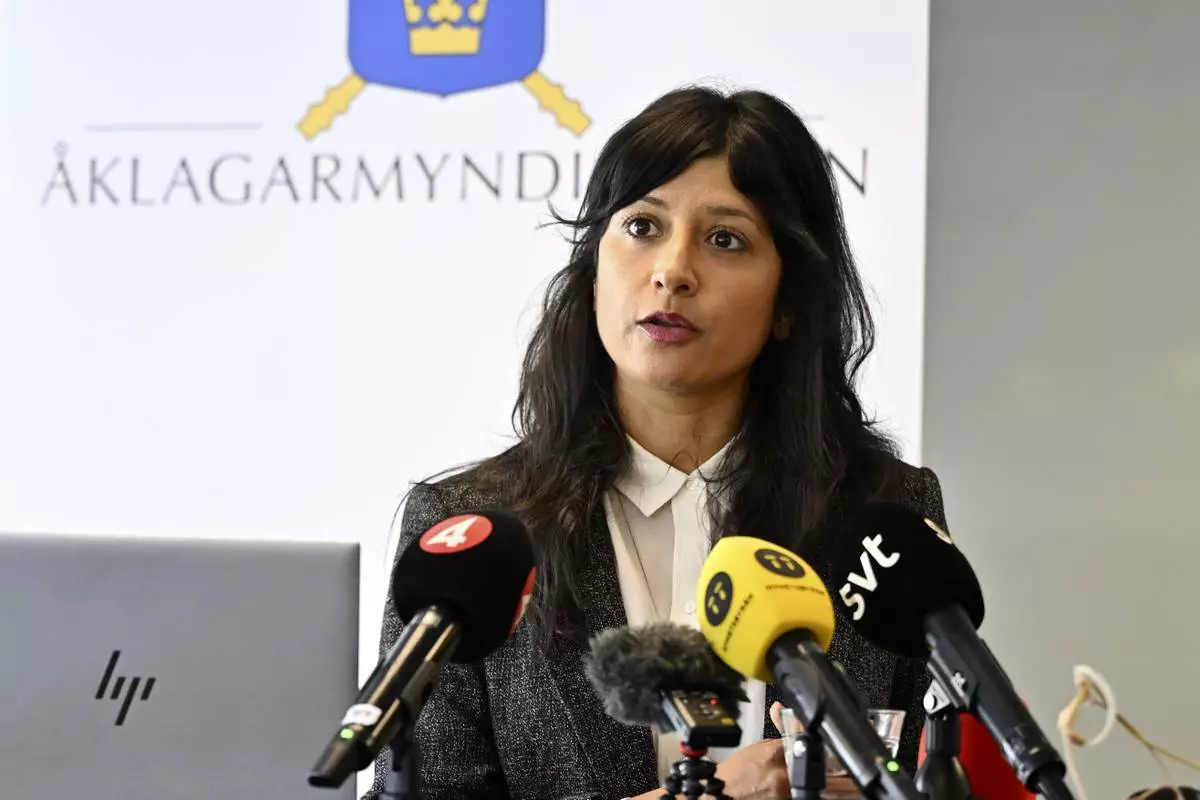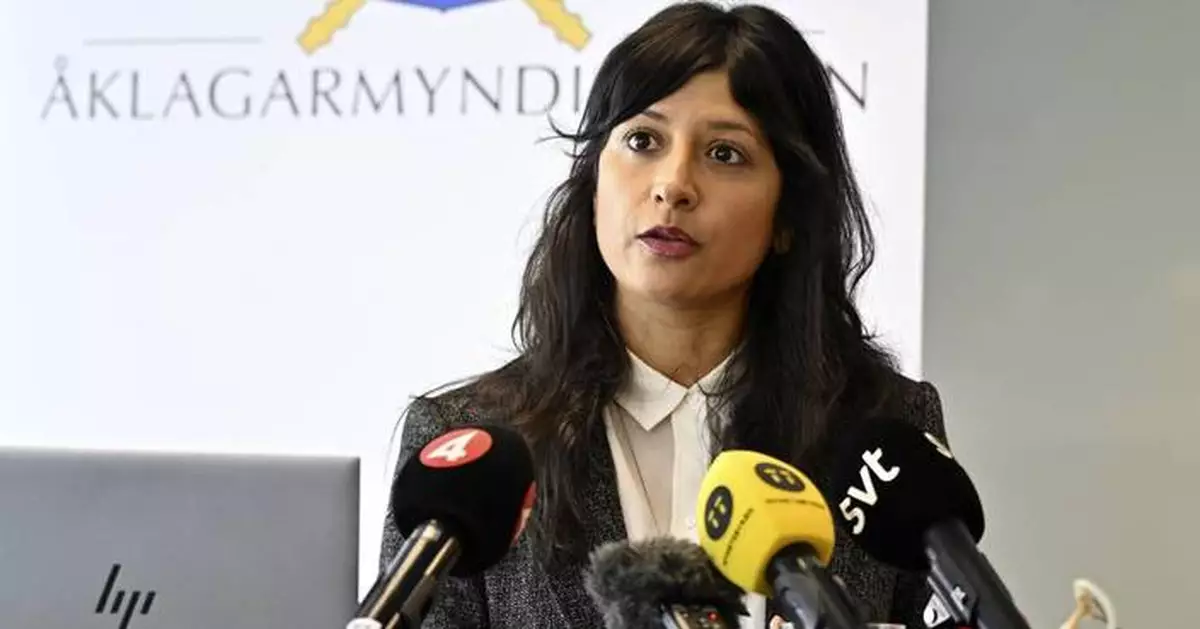COPENHAGEN, Denmark (AP) — Swedish authorities on Thursday charged a 52-year-old woman associated with the Islamic State group with genocide, crimes against humanity and serious war crimes against Yazidi women and children in Syria — the first such case on trial in the Scandinavian country.
Lina Laina Ishaq, who's a Swedish citizen, allegedly committed the crimes from August 2014 to December 2016, in the city of Raqqa, the former de facto capital of the militant group's self-proclaimed caliphate and home to about 300,000 people.
The crimes “took place under IS rule in Raqqa, and this is the first time that IS attacks against the Yazidi minority have been tried in Sweden,” senior prosecutor Reena Devgun said in a statement. The Yazidis are one of Iraq’s oldest religious minorities.
“Women, children and men were regarded as property and subjected to being traded as slaves, sexual slavery, forced labor, deprivation of liberty and extrajudicial executions,” Devgun said. “IS tried to annihilate the Yazidi ethnic group on an industrial scale."
In announcing the charges, Devgun told a news conference that the prosecutors were able to identify Ishaq through information from the U.N. team investigating atrocities in Iraq, known as UNITAD.
In a separate statement, the Stockholm District Court said the prosecution claims she detained a number of women and children of the Yazidi ethnic group in her residence in Raqqa, and “allegedly exposed them to, among other things, severe suffering, torture or other inhumane treatment" and also deprived "them of fundamental rights for cultural, religious and gender reasons contrary to general international law.”
According to the charge sheet, obtained by The Associated Press, Ishaq is suspected of holding nine people, including children, in her Raqqa home for up to seven months and treating them as slaves. She also abused several of those she held captive.
The charge sheet said that Ishaq, who denies wrongdoing, is accused of having molested a baby, said to have been 1 month old at the time, by holding a hand over the child’s mouth when he screamed to silence him.
She is also suspected of having sold people to IS knowing they risked being killed or subjected to serious sexual abuse.
“In short, her explanation is that she has never bought another person, that she has never owned or exercised any control over another person, and that she has never sold another person,” Ishaq's lawyer Mikael Westerlund told Swedish news agency TT.
In 2014, IS militants stormed Yazidi towns and villages in Iraq’s Sinjar region and abducted women and children. Women were forced into sexual slavery, and boys were taken to be indoctrinated in jihadi ideology.
The court said Ishaq's trial was to start Oct. 7 and last approximately two months. Large parts of the trial are to be held behind closed doors.
Ishaq was earlier convicted in Sweden and sentenced to three years in prison for taking her 2-year-old son to Syria in 2014, to an area then controlled by IS. She had claimed that at the time, she had told the child’s father that she and the boy were only going on a holiday to Turkey. However, once in Turkey, the two crossed into Syria and into IS-run territory.
In 2017, when the Islamic State’s reign began to collapse, Ishaq fled from Raqqa and was captured by Syrian Kurdish troops. She managed to escape to Turkey where she was arrested with her son and two other children, she had given birth to in the meantime, with an IS foreign fighter from Tunisia.
She was extradited from Turkey to Sweden. During her first trial and conviction in 2021, Ishaq was not identified by name.
She had previously lived in the southern Swedish town of Landskrona.

Prosecutor Reena Devgun speaks during a press conference regarding the indictment of a 52-year-old woman, associated with the Islamic State group, with genocide, crimes against humanity and serious war crimes against Yazidi women and children in Syria, in Stockholm, Thursday, Sept. 19, 2024. (Anders Wiklund/TT News Agency via AP)

Prosecutor Reena Devgun speaks during a press conference regarding the indictment of a 52-year-old woman, associated with the Islamic State group, with genocide, crimes against humanity and serious war crimes against Yazidi women and children in Syria, in Stockholm, Thursday, Sept. 19, 2024. (Anders Wiklund/TT News Agency via AP)












